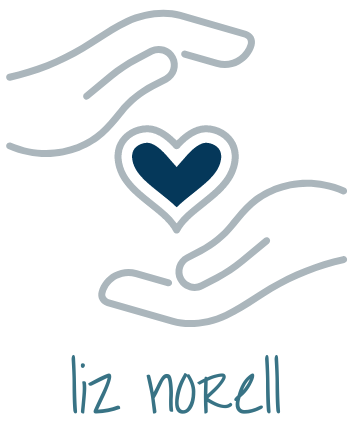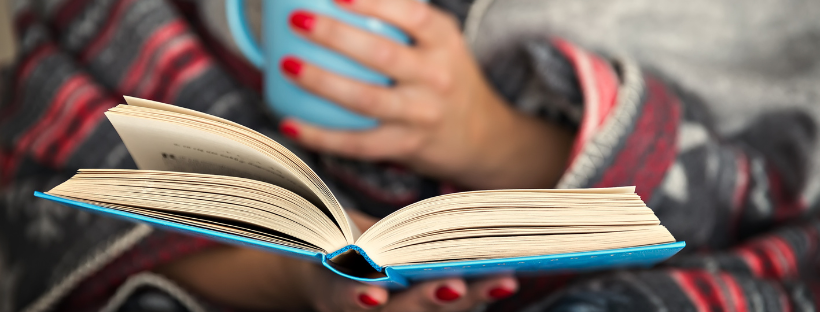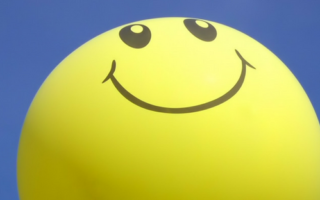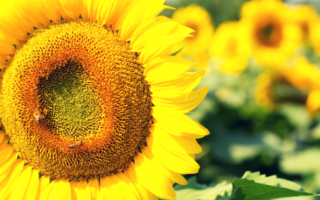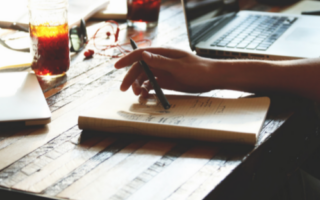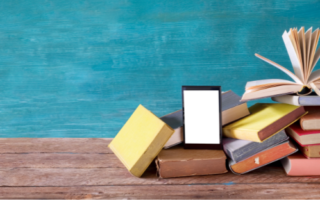After basically just not writing this post last year — why? I have no idea — I’m back for my sixth (mostly) annual installment of my favorite reads from the last year. Before I get started, please note that these are my favorite reads of 2022, not my favorite books of 2022. Why the distinction? Very few of these books were published last year — in fact, many are several years old. That means you can procure most of these in paperback, possibly even at your friendly neighborhood used bookstore.
Suffice it to say that 2022 was a banner reading year for me. Several factors conspired to make this possible:
- The world is a dumpster fire. We can all agree on this, right? But because the world came to feel just TOO MUCH for me around … oh, say, late February? I more or less stopped listening to morning news-y podcasts and started listening to audiobooks. Specifically, happily-ever-after (HEA) romances that often featured voices of people I now feel I know well. (For example: Shane East, Joe Arden, Jason Clarke, Andi Arndt, Zachary Webber, and Lili Valente.) I finished an average of one of these weekly from March-December, which significantly boosted my total books read for the year.
- I’m no longer working 50+ hours a week. I don’t have much to say about why (because reasons*), but I definitely haven’t been working at the same frenetic pace since … oh, say, late February? When you find out, as the book title suggests, that Work Won’t Love You Back, the impulse to let work take over that life goes down. (Note that those words are Sarah Jaffe’s, not mine, and I’m merely suggesting that the book title is an epiphany many of us, particularly in higher ed, need to experience.)
- Goodreads has totally hacked my motivations. I love nothing more than the satisfaction of ticking something off as done. Goodreads has completely hacked this by making it social. There is no question I read more because I’m chasing the dopamine hit of another tick on my Read list. You can find/follow me here.
- I’ve got a system. Over the last few years of #pandemic reading, I’ve developed something of a reading system. Basically, I always have four books (at least) going:
- A print nonfiction book. I read this during the daytime when I have opportunities to read — such as when I’m waiting for a meeting to start (in person), at the doctor’s office, eating lunch, etc. I draw from nonfiction categories in current events, race/diversity/equity, pedagogy, business, and personal development. I love them all.
- A printed fiction book. I read this before bedtime, usually at least 15-20 minutes before I do the New York Times daily sodoku and go to sleep.
- An audio nonfiction book. I listen to this on my way to wherever I might go in a particular day. It’s usually something narrated by the author of the book, and almost always something that hearing it read in the author’s voice will improve my experience of the book. Also, importantly, it needs to be something I don’t feel I ought to be highlighting/writing marginalia about. This means it’s often memoir.
- An audio fiction book (see above). I listen to this on my way home from wherever I might’ve gone in a particular day. It’s always a HEA romance, often written by Lauren Blakely or Meghan Quinn, though not exclusively.
In 2022, here are the stats:
- Exactly 200 books read, across all four of those formats.
- A total of 48,249 pages read.
- May was my most productive month: just more than 6,000 pages read.
Now for what you came here for: The HITS! I’m going to separate them into a few categories, because — if you really knew me, you’d know I’m terrible at choosing just one single favorite of anything.
Best general nonfiction
Tattoos on the Heart: The Power of Boundless Compassion, by Gregory Boyle
Father Gregory, or just “G” to his homies, runs Homeboy Industries in Los Angeles, a place that employs former gang members in a wide range of business ventures. The compassion and hope that G embodies is grounded in reality while always looking for the best in people and the world. I listened to the audiobook of this, which added many layers to my appreciation for his work and who he is. I cannot recommend this audiobook more highly; it left a lasting impression on me and was food for my soul when I listened this summer.
Unmasking Autism: Discovering the New Faces of Neurodiversity, by Devon Price
This book was so profoundly important to me that I wrote a whole blog about it here. Price’s exploration of what the autism spectrum looks like in particularly adult women was a revelation for me. Especially for those who work with people (ummm, all of us?!), this book helps create more understanding and empathy for those who fall on the spectrum… as I now believe I do.
Best nonfiction about biases
The Sum of Us: What Racism Costs Everyone and How We Can Prosper Together, by Heather McGhee
I was fortunate to get to hear a keynote with Heather McGhee at the Achieving the Dream DREAM 2022 conference in the spring. I plunged into her book soon thereafter, and it was amazing. I’m not the only one to say this, though; it’s won awards and been short-listed for many others. In the book, McGhee tackles the thorny issue of systemic racism by showing how prejudicial policies hurt everyone. The quintessential example comes early in the book: The city of Birmingham, Alabama decided to permanently close a public pool, filling it in with concrete, rather than consent to have it racially integrated. Everyone lost a pool, not just the Black kids/families. This book manages to acknowledge the racial problems in our country without becoming despairing or accusatory; it charts a way forward, and I appreciate that. Definitely read this one.
The Broken Ladder: How Inequality Affects the Way We Think, Live, and Die, by Keith Payne
This came recommended to me by many, most recently a colleague who teaches psychology. Several of my students read it in honors American Government a couple of years ago and raved about it — the surest signal of a quality book. Payne did not disappoint. This book is accessible and clear about how inequality makes us all worse off. His lens is not specifically racial, like McGhee’s, but the impact is similar to her book. At issue here is the system that makes a few people significantly better off while leaving more and more people behind. You’ll be surprised at how pervasively this phenomenon creeps into every aspect of our life.
Best books for educators
Inclusive Teaching: Strategies for Promoting Equity in the College Classroom, by Kelly Hogan and Viji Sathy
Published in the stellar West Virginia University Press series on teaching & learning in higher education, this book is masterful. Hogan and Sathy manage to share a wealth of knowledge in a succinct, punchy, and easy-to-apply manner. I aspire to write as cogently and accessibly as these two have in this terribly important book. If you teach, you need to read this book. And if you work with students, you’ll benefit, too — even if you’re not in a classroom regularly.
Stolen Focus: Why You Can’t Pay Attention — and How To Think Deeply Again, by Johann Hari
In addition to being a brilliant writer and thinker, Hari has an enchanting voice, which is why I listened to this on audiobook rather than reading the printed edition. However, it was SO good and relevant to my own work/interests that I read the printed version, too, to take notes. The book talks about how the world has conspired to steal away our attention, but it’s more nuanced than a simple screed against social media and technology. While not specifically marketed as a book for educators, the lessons of this book felt enormously helpful in my own teaching/pedagogy work. (His other book, Lost Connections, was another very, very good read this year.)
Best books to be a better citizen
Breaking the Social Media Prism: How to Make Our Platforms Less Polarizing, by Chris Bail
I am now regularly visiting the Duke Polarization Lab‘s web site for useful resources and to see if they’ve got a job I might be qualified to do — because WOW, Chris Bail really delivered something special with this concise and accessible book. I like to think that if I’d chosen the “serious scholar” route on my academic journey, this is the kind of work I’d be doing right now in my scholarship. This isn’t an academic book, to be clear — it’s meant for everyone, and is a realistic and immediately applicable strategy for enjoying social media without being tricked into its worst honey traps. If we could also get our social media platforms to work this way, even better. Their web site (linked above) has some great tools on it, too. Check those out.
Cultish: The Language of Fanaticism, by Amanda Montell
You might be thinking it’s odd that I’m putting what is essentially a linguistics book on the “be a better citizen” short list, but it deserves the spot. Cultish talks about how and why cults attract seemingly good-intentioned people and ensnares them into the web of lies. It’s fun, an easy read, and useful. Plus, you’ll have the added benefit of getting to know Amanda, who co-hosts a fantastic podcast called “Sounds Like a Cult,” where they look at whether a particular phenomenon is a cult, and if so, in what ways. Amanda’s co-host, Isabela Medina-Maté, is a stand-up comedian, and no matter how many episodes I listen to of this podcast, I will NEVER be able to tell their voices apart. (Sorry, ladies.) Recent favorites include the Supreme Court, Starbucks, and academia (because obviously).
Best books to be a better person
I Didn’t Do The Thing Today: Letting Go of Productivity Guilt to Embrace the Hidden Value in Daily Life, by Madeline Dore
Recommended by Mari Andrew [I LOVE MARI!!!], this book was something I savored over a couple of months, dipping back in over time to let this marinate. I mean, a book about embracing not doing the thing today deserves that, right?! While some of this book felt a little more fluffy and less utilitarian, I think that’s part of its charm. Dore devotes the book to ruminating on nothing less and nothing more than what makes a life worth living. Spoiler: IT’S NOT DOING THINGS. Shocking, I know. I recommend this book mostly because it helps us pause and think about what would make us feel like our life has been well-lived. She suggests compassion, curiosity, and kindness are critical parts of that pursuit.
A Hidden Wholeness: The Journey Toward an Undivided Life, by Parker Palmer
I am a *huge* Parker Palmer fangirl, ok? I’ve been engaging with the Center for Courage & Renewal, which he helped start, for the last couple of years, and I’m so grateful for the meaningful connections and lessons I’ve learned about exactly what this book covers — namely, how to live a less-divided life. If you’re only going to read one Parker Palmer book, make it this one. (And I daresay, after you read this one, you won’t be able to resist picking up another one.) And if this all resonates with you, maybe we should talk about going to a CCR program together. I’m constantly window shopping their list of upcoming events. I WANT TO GO TO THEM ALL!
Best fiction
If The Shoe Fits, by Julie Murphy
This is the first of a series, published by Disney (?!), reimagining classic fairy tales as modern, inclusive romances. This one tackles the Cinderella story, but reimagined as a reality dating show with a plus-size female protagonist. Julie Murphy can be counted on to bring inclusive romance, and she delivers with this one.
The No-Show, by Beth O’Leary
I freaking loved this book so much I can’t stand it. It begins by introducing us to three women, all of whom have been stood up on Valentine’s Day … by the same guy. The story weaves their three stories together in a way that is charming and engrossing, all while maintaining the tension of trying to understand just exactly what this man has done. It’s delightful. Beth O’Leary has become one of my favorite writers (up there with Kate Clayborn, who can Do No Wrong).
Hottest (audio) romance novel
The Good Guy Challenge, by Lauren Blakely
If you are looking for a steamy HEA, this is my #1 recommendation. Jason Clarke’s voice will do magical things to you. It’s so steamy, in fact, that it comes with a “Heat Warning” on Blakely’s web site.
Best fiction – series
Cara Bastone’s Audible original series, Love Lines, was amazing. I’ve listened to each one twice, once alone and once with the family. It’s rated PG and totally SFW/safe-for-family listening. You should definitely listen to them all.
Your turn! Tell me what I should consider reading next year! If it’s nonfiction, I’m probably pretty open to your suggestions. If it’s fiction and not a romance, the chances are good I won’t. But you can still recommend it.
Want more of my favorite reads? Here are my lists from 2020, 2019, 2018, 2017, and 2016.
~~~
* My attorney would advise me to say no more about these reasons at this time.
** That footnote was almost entirely for Jeff B., who apparently doesn’t like orphaned footnotes.
